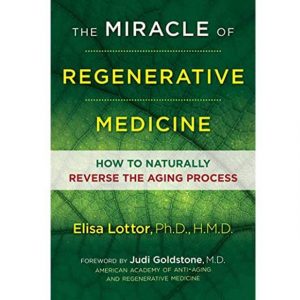Memory Loss and Chronic Inflammation
Memory Loss and Chronic Inflammation Torrance
Can memory loss be a side effect of chronic inflammation?
We all forget where we put our keys once in a while and even find ourselves walking into a room and not remembering why we thought we needed to be there at that moment. These are normal lapses that everyone experiences and can generally be chalked up to not paying attention or having far too many other things on our minds. When they start happening more often or we realize that we are consistently having difficulty recalling names or “losing” words that were previously familiar, it can make us wonder if we are suffering a more serious type of memory loss.
Alzheimer’s Disease & Dementia
Dementia and Alzheimer’s disease have become familiar fears, especially as longevity increases. There are a lot of things that we fear about aging but probably none more than that of losing our memory. Research has been ongoing in an attempt to understand why some are affected so much more than others and, hopefully, discover ways to stop or at least slow it down. One recent study done by researchers at Johns Hopkins University in Baltimore, MD, found that there may be a connection between chronic inflammation that develops in midlife and memory loss in our later years.
The Johns Hopkins study lasted for 20 years and included more than 12,000 participants who began the study in their mid-50s. Taking into account factors like education and health issues, like heart disease, blood pressure rates and cholesterol levels, it was determined that the greater the amount of chronic inflammation in the beginning and throughout the study, the more pronounced the cognitive decline after the 20 years.
More On Alzheimer’s Disease
Since there is presently is no cure for Alzheimer’s Disease, disease prevention is a strategic research focus. Previously, a number of studies link regular, moderate coffee consumption with a possible reduced risk of developing Alzheimer’s Disease. Arfram Ikram, from Erasmus Medical Centre Rotterdam (The Netherlands), and colleagues investigated compounds in coffee, identifying caffeine and polyphenols as key candidates.
How Caffeine May Aid In Alzheimer’s Disease Prevention
Caffeine appears to help prevent the formation of amyloid plaques and neurofibrillary tangles in the brain – two hallmarks of Alzheimer’s Disease. In addition to this, both caffeine and polyphenols may reduce inflammation and decrease the deterioration of brain cells – especially in the hippocampus and cortex, areas of the brain involved in memory. The lead investigator comments that: “The majority of human epidemiological studies suggest that regular coffee consumption over a lifetime is associated with a reduced risk of developing Alzheimer’s Disease. An optimum protective effect occurs with three to five cups of coffee per day.”
Source:
Di Marco LY, Marzo A, Munoz-Ruiz M, Ikram MA, Kivipelto M, Ruefenacht D, et al. “Modifiable lifestyle factors in dementia: a systematic review of longitudinal observational cohort studies.” J Alzheimers Dis. 2014;42(1):119-35.
What Is Chronic Inflammation?

Chronic Inflammation Vs. Acute
Inflammation is not always a bad thing. Acute inflammation, which is short-term, is part of the immune system’s arsenal that is called into action to help deal with an injury or fight an infection. This type of inflammation only affects the area where there is a problem and, once the crisis is over, acute inflammation disappears.
Chronic inflammation is not localized, nor is it short-term. Because it is spread throughout the body, the perception of the level of inflammation that is experienced may not be as extreme as acute inflammation, but it can last for months and, often, years. This type of long-term, ongoing inflammation can take a huge toll on the body, resulting in damage to joints, tissue and organs. It can also be a contributing factor in the development of serious conditions like cardiovascular disease and cancer.
There are a wide range of causes of chronic inflammation, from autoimmune disorders like multiple sclerosis and rheumatoid arthritis, all the way to physical stressors. Symptoms often present as joint pain and stiffness, excessive tiredness or fatigue and digestive issues.
It has always been known that chronic inflammation was unhealthy, but with these new findings linking it to memory loss, there is even more urgency in doing whatever possible to eliminate or, at least, better control it. The recommended steps for doing that will sound familiar because they are the same lifestyle changes we are constantly being urged to do: get more exercise, eat a cleaner and healthier diet, maintain an optimal body weight and reduce stress.
As familiar as that last litany of health suggestions might be, it isn’t always easy to actually do the things we know will make us feel better and give us a better chance of living a happier, healthier life. It often requires help and advice to get us on the right track.
Treating Chronic Inflammation & Memory Loss
At the Southern California Center for Anti-Aging, we understand the importance of protecting against memory loss, including from the effects of chronic inflammation. We strongly believe correcting imbalances and deficiencies in nutrition, vitamin and antioxidant status, along with improving fitness and balancing and restoring hormones with Bioidentical Hormone Replacement Therapy, can offer help with memory issues while creating the foundation for a healthier and happier life.
To learn more about memory loss and or if you have questions about any of our services, take advantage of our Free Consultation by clicking here to use our convenient online form.
Related Content
Contact Us Online
Our Office
— Kelly Young
— Alice Tami
Get In Touch With Us


